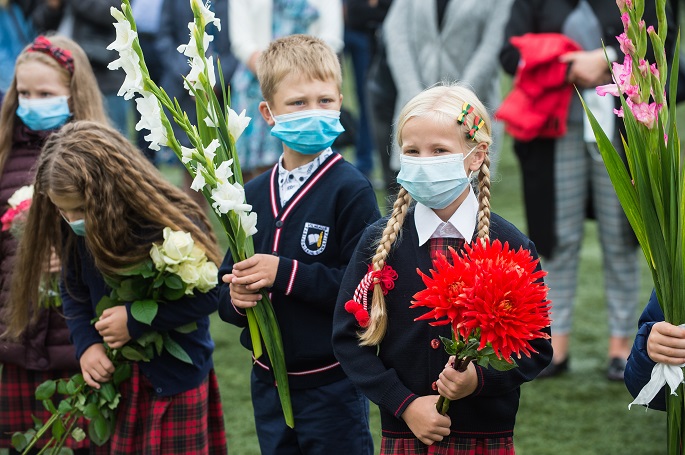Lithuania imposes restrictions on Easter travel
Published : 27 Mar 2021, 00:09
The Lithuanian government on Friday decided to extend the current nationwide COVID-19 lockdown by another month, until April 30, due to the worsening epidemiological situation in the country, reported Xinhua.
It has also banned non-essential travel between municipalities in a bid to curb the spread of the highly contagious COVID-19 variants first detected in Britain and South Africa.
Between March 27 and April 6, people will be banned from traveling to other cities and municipalities in the country without a compelling reason. However, the ban does not apply to municipalities surrounding cities and towns.
The upcoming Easter holiday season may lead to an increase in the movement of people between municipalities, "which increases the risks of contacts," Health Minister Arunas Dulkys was quoted by local media as saying.
He said that different variants of COVID-19, which are more contagious, appeared to be the main factor behind the surge in COVID-19 cases.
Lithuania introduced movement restrictions in mid-December last year. Since March 16, these have only been in effect in the municipalities with the worst epidemiological rates.
However, in recent days Lithuania has experienced a fresh surge in COVID-19 cases due to the coronavirus variant first detected in Britain.
On Tuesday, Lithuania said it had detected the first two cases of the COVID-19 variant first identified in South Africa.
On the same day, Prime Minister Ingrida Simonyte told reporters that, in light of the appearance of this strain in the country, "I would not rule out that we will have to consider tighter measures."
Lithuania imposed its second nationwide COVID-19 lockdown on Nov. 7, 2020. It was subsequently extended until March 31 this year.
To date, Lithuania's Department of Statistics has confirmed 212,676 COVID-19 cases, 816 of these in the past 24 hours, and 3,529 coronavirus-related deaths.
As the world is struggling to contain the pandemic, vaccination is underway in an increasing number of countries with already-authorized coronavirus vaccines.
In Lithuania, 310,915 people have received the first coronavirus vaccine dose and 143,384 the second.
Meanwhile, 267 candidate vaccines are still being developed worldwide -- 83 of them in clinical trials -- in countries including Germany, China, Russia, Britain, and the United States, according to the latest information released by the World Health Organization.


